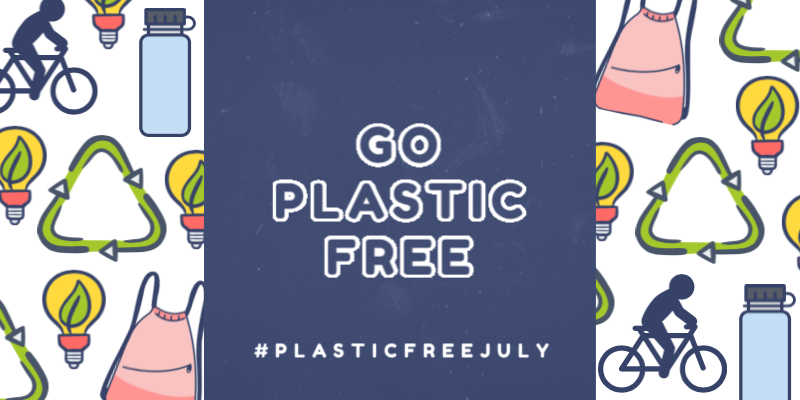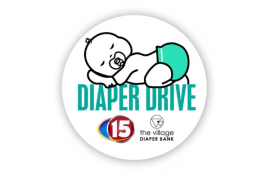By Kristin Dvorak
You may have seen the hashtag floating around on social media. In 2011, the Plastic Free Foundation initiated its Plastic Free July campaign. The goal of Plastic Free July is to cut out something in your household that is packaged in or is made of single-use plastic and replace it with a more sustainable option.
Take, for example, your plastic toothbrush. Most of us replace it every three months, which means we’re throwing away at least four toothbrushes per year. In the U.S. alone, one billion toothbrushes are thrown away every year, which is enough to stretch around the earth four times! To make matters worse, it takes over 400 years for one plastic toothbrush to decompose. Plastics in landfills release harmful chemicals into the air, which is a major contributor to climate change.
So, what can we do about it? Here is a short list of household items that have great sustainable replacements.
Water Bottles
It’s common knowledge that plastic water bottles are harmful to the environment in many ways. One of the simplest things you can do to minimize the risk to our earth is to invest in a reusable, insulated water bottle or mug (or both). Fill your water bottle before you leave the house to avoid buying a plastic bottle when you’re out (and in an insulated bottle, it’ll stay cold). Bring your insulated mug into any coffee shop to avoid using single-use cups. This marbled travel cup from Hazel General Store is perfect for water or coffee.
Toothbrushes
Replace your plastic one with a bamboo one! Bamboo toothbrushes are typically made out of moso bamboo, which is one of the fastest-growing bamboo plants in the world, making it a sustainable resource. Another bonus is that pandas don’t eat moso bamboo, so our vulnerable friends aren’t affected by this option. Lastly, bamboo toothbrushes can decompose in as little as four months. This four-pack from Good Day Shop gives you a head start on cleaning your teeth for the rest of the year.
Tampons
Not only are single-use feminine hygiene products bad for the environment, but they cost you hundreds of dollars a year. By opting for a menstrual cup, you cut down on waste — and save money. This one from Green Life Trading Co. is $35 and comes in two sizes.
Household Cleaners
Save the planet by purchasing reusable glass bottles for your household cleaning products and filling them with homemade solutions. There are several great formulas for cleaning sprays and solutions that you can make at home.
Try this recipe for a natural surface cleaner:
- 3 cups water
- ½ cup white vinegar
- 15 drops essential oil for fragrance (lavender, tea tree and lemon are all great options)
Plastic Bags
By opting for reusable and washable bags, you can eliminate the mountain of plastic bags that usually accompanies one grocery store trip. (Another tip: try not to use the tiny produce bags at the grocery store when possible, to cut down on plastic bag use there, too). This organic cotton net tote from Earthbound is the perfect grocery store go-to. (Note: during the pandemic many stores are not allowing reusable bags, but this should be a go-to option when reusable bags are allowed again!).
Masks
Right now, it’s a no-brainer that you should have a mask on you at all times. Single-use surgical masks could have a devastating impact on our environment, so choose a fabric one that can be washed and reused in order to reduce the number of plastic masks that are being thrown away. Dune Gift & Home has a few options for reusable face masks, like this cotton mask for $11.
And, the list goes on. Take a look around your home and figure out which items might be easiest to replace. Once you’ve tackled the easy ones, think more critically. Can you stop buying bottles of shampoo and opt for a waste-free shampoo bar instead? Can you make your own laundry detergent? It’s on all of us to make an effort in order to create a better world.




